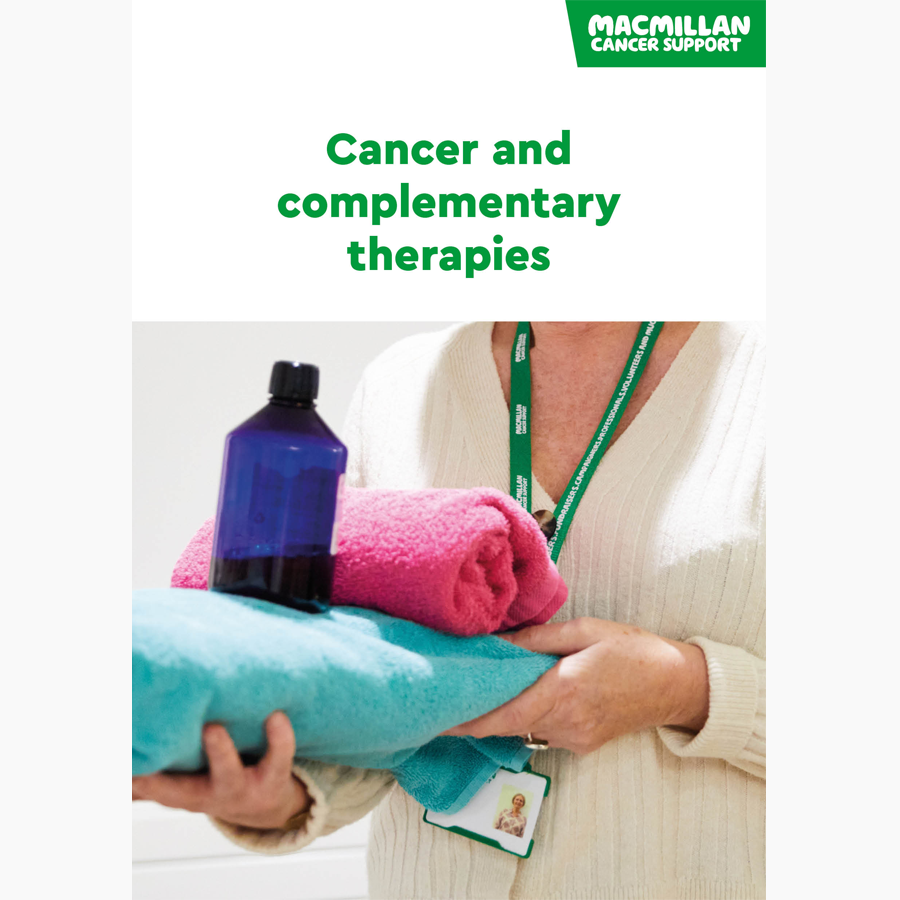
Cancer and complementary therapies
Booklet
Published:
01 Oct 2024
Next review:
01 Oct 2027
Edition:
11

The booklet is about complementary therapies. There are many different types of complementary therapy. This booklet is about the most common types used by some people with cancer.
View online
You can also order a physical copy of this booklet on Macmillan Orders
with ID: MAC11645
Published:
01 Oct 2024
Next review:
01 Oct 2027
Edition:
11
The booklet is about complementary therapies. There are many different types of complementary therapy. This booklet is about the most common types used by some people with cancer.
About this booklet
This booklet is about complementary therapies. There are many different types of complementary therapy. This booklet is about the most common types used by some people with cancer. It is for anyone who has cancer and who wants to know more about cancer and complementary therapies.
Visit our online information about cancer and complementary therapies.
Tag: LIFST, SDEF, GENS
More booklets like this
-
Booklets 01 Mar 2025This booklet is about the possible side effects of cancer treatment. It is for anyone who is having, or thinking about having, treatment for cancer.
How we can help
Macmillan Support Line
The Macmillan Support Line is a free and confidential phone service for people living and affected by cancer. If you need to talk, we'll listen.
Clinical Information Nurse Specialists
Our Cancer Information Nurse Specialists are dedicated cancer nurses available to talk to on our Macmillan Cancer Support Line.
Contact our money advisers
Our specialist money advisers can give you free and confidential advice and help you to find out what benefits and financial support you might be entitled to.



